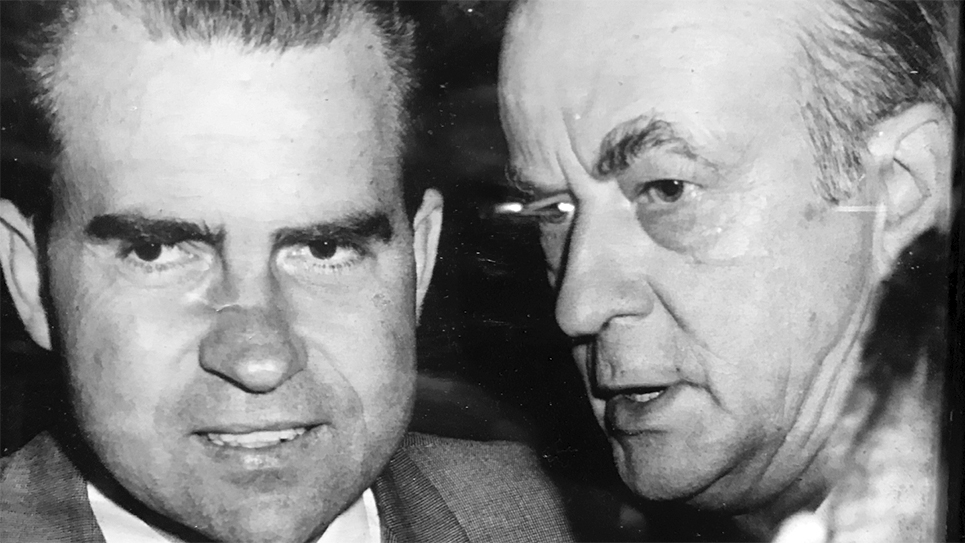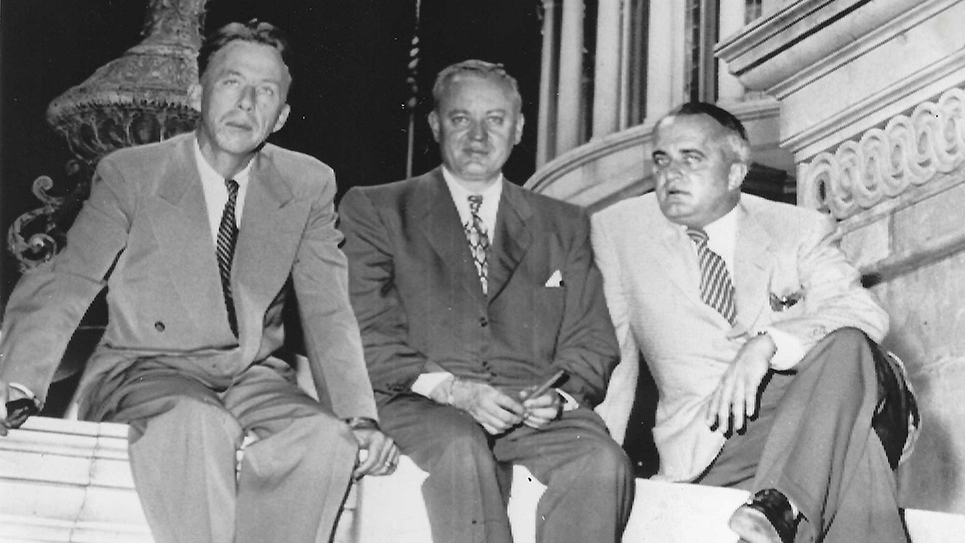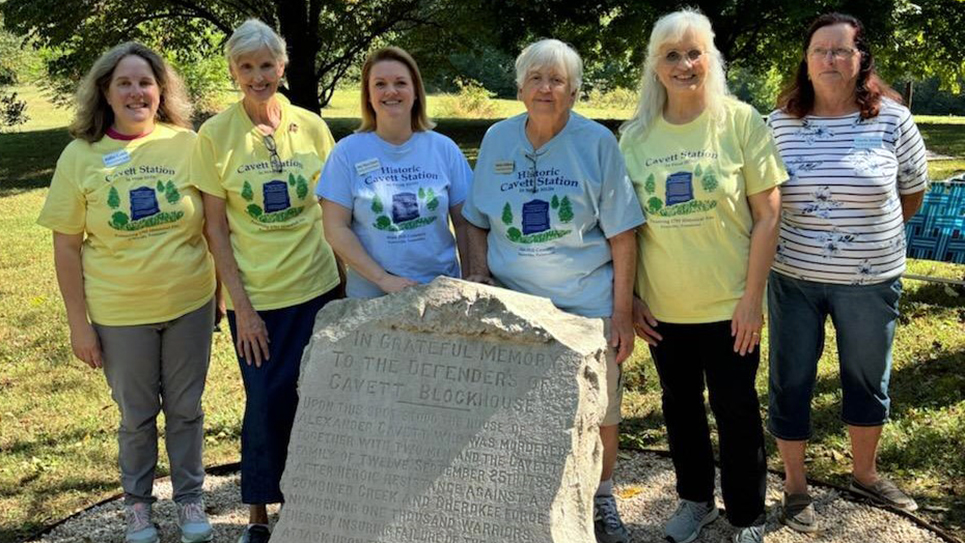The Fall of Congressman John Jennings, IV
Congressman John Jennings, the incumbent from Tennessee’s Second Congressional District, was fighting an increasingly bitter reelection battle inside the Republican primary. The contest was more personal than it would have been otherwise because it was fueled by the intense dislike between Judge Jennings and his challenger, Howard Baker (not to be confused with his son who was the U.S. senator from Tennessee). A disagreement at the 1948 GOP National Convention had made the two men enemies and to this day, a difference in politics can make one-time friends the bitterest of adversaries. Throughout his decade in Congress, John Jennings had been the most influential supporter of the presidential ambitions of New York Governor Thomas E. Dewey in Tennessee. Howard Baker, a veteran campaigner, was the chair of Tennessee’s delegation to the Republican National Convention and had voted for Senator Robert Taft of Ohio. Jennings was stunned, believing Baker was pledged to Dewey. The congressman and Baker exchanged hard words and left the convention as political enemies.
Judge Jennings had been hard pressed to win renomination inside the 1948 GOP primary, facing attorney Hobart Atkins. Howard Baker loudly supported Atkins in the primary contest and made speeches in several counties supporting Atkins and denouncing Jennings.
Baker’s campaign was managed by the candidate’s 24-year-old son, known as “Howard Henry,” a recent law school graduate who was also his father’s law partner. Baker opened the campaign by pointing to the salary of Miss Helen Jennings, the daughter of the congressman and the highest paid employee in the congressman’s office. Howard Baker also pointed to the absences of Jennings from Washington when Congress was in session.
As is oftentimes the case, there was more to the campaign than met the eye. There was a determined effort to oust both Tennessee GOP congressmen. Guy Lincoln Smith was the editor of the Knoxville Journal, a daily newspaper that made no bones about being the voice of Republicanism in East Tennessee and the entire Volunteer State. Smith was also the chairman of Tennessee’s State Republican Party and closely allied to the most influential Republican in Tennessee, former Congressman Carroll Reece. Reece was a rarity in politics, a successful Republican below the Mason-Dixon Line and a national figure. Reece had served as the chairman of the Republican National Committee and had presided over the 1946 elections, which had been a banner year for the GOP. Republicans, campaigning on the slogan “Had Enough?” captured control of both Houses of Congress, which ended the age of Roosevelt. Reece, although he tried to remain impartial in the 1948 presidential contest, was thought to be favorable to the presidential candidacy of Robert Taft and following the convention, which nominated Tom Dewey, the New Yorker replaced the Tennessean as chairman of the national party. Reece came home to run for the United States Senate in what was believed to be the best year Republicans had seen since 1920.
Tennessee Republicans nominated a serious statewide ticket in Reece for the Senate and country music legend Roy Acuff for governor. Republicans grew excited and Democrats highly nervous when the Reece-Acuff ticket drew tens of thousands to their campaign appearances even in the most rabidly Democratic areas. The result was a disaster, with Reece and Acuff winning only a third of the vote statewide. Worse still, the Reece-Acuff ticket had run well behind Governor Dewey in the First and Second Districts, which were reliably Republican. Reece and Acuff had lost the Second District. Guy Smith believed the reason why was because the ticket had been undercut by Congressmen John Jennings and Dayton Phillips. Smith determined both men must be removed from the House of Representatives.
Reece was running hard to reclaim his seat in the House from Dayton Phillips and Howard Baker was challenging John Jennings. The Knoxville Journal lavished praise upon Carroll Reece and Howard Baker while missing no opportunity to bad mouth Jennings and Dayton Phillips.
Both Roy Acuff and Hobart Atkins campaigned for Howard Baker at a rally in Maynardville. All three – Acuff, Atkins and Baker – fired off verbal salvos in the direction of Congressman Jennings. Roy Acuff accused the congressman of having worked against the Reece-Acuff ticket in the 1948 election, while Howard Baker hammered home his theme of Jennings’ absenteeism.
Fred Travis once wrote that John Jennings “takes to a political fight or a lawsuit like a child headed to an ice cream parlor.” Once having a full head of red hair, it had turned gray and fallen out, but the congressman could still make a fiery speech with the best of them and was renowned for using neither notes nor written speeches, preferring to speak off the cuff.
Congressman Jennings hurled back the accusation of absenteeism at Baker. The congressman, always well able to take his own part in any dispute, said “if Mr. Baker wants to go after a congressman who holds an all-time record for absenteeism, I hand him his boss, Mr. B. Carroll Reece.” Jennings insisted Reece had never resigned his seat in the House in 1946 when he had been elected chairman of the Republican National Committee, but according to Jennings, Reece had done little or nothing as a congressman, although Reece had “clung to his salary.” “For nine long months, Mr. Reece drew $9000 in salary and never answered a roll call nor voted on a single measure,” Jennings cried. “I have frequently seen Mr. Reece, after he was elected chairman of the Republican National Committee on April 1, 1946, slip out of the House to avoid answering a roll call on a measure that was being voted on at a time when his vote was needed by the Republican Party.”
Nor did Jennings ignore Howard Baker, who had served as district attorney general for a collection of counties surrounding his native Scott County. Jennings said “the all-time record among district attorney generals in the state … for absenteeism from his post” belonged to Howard Baker. Jennings reminded voters that while serving as attorney general, Baker was “in the active practice of civil law.” “In the Chancery Court of Scott County alone, Mr. Baker had 94 cases, not to mention suits in which he was employed in the courts of other counties,” Jennings said. Baker had 108 cases in the circuit court of Scott County and the congressman noted the Tennessee General Assembly had made it illegal for a district attorney general to practice law during the 1949 session after Baker’s “failure.”
Jennings continued to pound home his belief that Baker was “the candidate of B. Carroll Reece, who seeks to make the great Second Congressional District the tail of his political kite.”
Baker continued his attack on Jennings’ employing his daughter and tending to his own thriving law practice. Baker promised to be a “full-time” congressman if elected and said he would open an office in the post office building in Knoxville, staffed by a field secretary who would help constituents with problems. Baker noted that congressmen were allowed office space in a local post office building. “My opponent never took time to open it. He was too busy in his law office,” Baker said.
Jennings responded by producing a letter written to him by Howard Baker asking the congressman to help his son get a nomination to West Point.
In the middle of July, the Knoxville News-Sentinel endorsed Frank Wilson for the Democratic nomination for the House and John Jennings for the GOP nomination. The News-Sentinel, then as now, was a Democratic newspaper and such a dual endorsement likely did Judge Jennings more harm than good inside a Republican primary contest. The News-Sentinel opined that the absenteeism charge against Jennings was likely true during some of his earlier terms in office, but less so since the Second World War, when the congressman “has been on the job most of the time.” The newspaper attributed much of Jennings’ absences due to his perennial fight to clean up political corruption inside the Second Congressional District. Guy Smith’s Knoxville Journal gleefully trumpeted the endorsement of Jennings by the News-Sentinel, which it called a “Browning organ” (for Governor Gordon Browning, a Democrat). The Journal stated the endorsement by the News-Sentinel was “expected” due to the alliance between Jennings and Governor Browning.
The Chattanooga Daily Times was one of the best newspapers in the State of Tennessee in its coverage of politics, state and local. The Chattanooga newspaper described the Jennings-Baker contest as being fought “hammer and tongs” by the two candidates. Howard Baker was one of the first congressional candidates in Tennessee’s Second District to use the radio extensively to reach voters. The race was so hot that the Chattanooga Daily Times stated some of the charges tossed about by both candidates were “unprintable.” Among those charges that could be printed were “election thief” and “liar.” Fred Travis, the veteran political reporter for the Daily Times, wrote both Jennings and Baker used “the bluntest possible terms that his opponent has sold out to vested interests.” Travis also noted, “Jennings appears to be in real trouble this time.” Travis noted Hobart Atkins had quite nearly beat Jennings two years earlier, not being a particularly strong candidate and without the full backing of Guy Smith and the “belligerent” Knoxville Journal.
As Election Day approached, Congressman Jennings ramped up his charge that Carroll Reece and Guy Smith were engaged in a “conspiracy” to defeat him. A three-man congressional team of Frank Fellows, Frank Chelf and Charles B. Deane arrived in Knoxville to investigate charges made by Congressman Jennings about election fraud. While the Knoxville Journal promoted Howard Baker and bashed John Jennings, the Knoxville News-Sentinel did just the opposite as the primary election was being fought across the Second Congressional District.
Roy Acuff took to the airwaves, not to warble a country song, but rather to reiterate his charges that John Jennings had not supported him during the 1948 campaign. “I have always operated on the principles that when a man tells you something you can believe it and I believed him (Jennings),” Acuff told his listeners. Judge Jennings had been a friend of Acuff’s father and the entertainer sighed, “If ever a country boy and a believer in mankind was ever disillusioned, that man was Roy Acuff on election day in November, 1948.” Acuff said he was “not mad,” but acknowledged he was “hurt.” “I still cannot understand why I was treated the way I was and by a man I thought was my friend,” Acuff said over the radio. Roy Acuff pointed to the Knoxville News-Sentinel as proof of having been betrayed by John Jennings, noting the editorial published by the daily newspaper had stated “they could not support Howard Baker because he had supported me for governor.” “Of course, they knew Mr. Jennings did not support me,” Acuff added. The country music superstar went on to endorse Howard Baker once again, whom he believed would make a “great congressman.”
For his part, Congressman John Jennings said he remained “confident” of victory. It was not to be. Howard Baker won the Republican primary in a landslide, carrying all nine counties comprising Tennessee’s Second Congressional District. So, too, did Dayton Phillips lose to Carroll Reece in the First District. Guy Smith was elated by the rout of those he held responsible for having undercut the 1948 Republican state ticket.
Howard Baker had to mollify the supporters of Judge Jennings and won the general election by a reduced majority, giving hope to the Democrats yet again, but he soon entrenched himself in office and remained there until he died of a heart attack on January 7, 1964, while shaving. John Jennings returned to his law practice and enjoyed his large home on Kingston Pike, which still stands today. The former congressman still played a part in the legal and political life of Knox County and remained welcome as a speaker to various clubs and organizations. John Jennings died on February 27, 1956, at age seventy-five.
© 2025 Ray Hill







